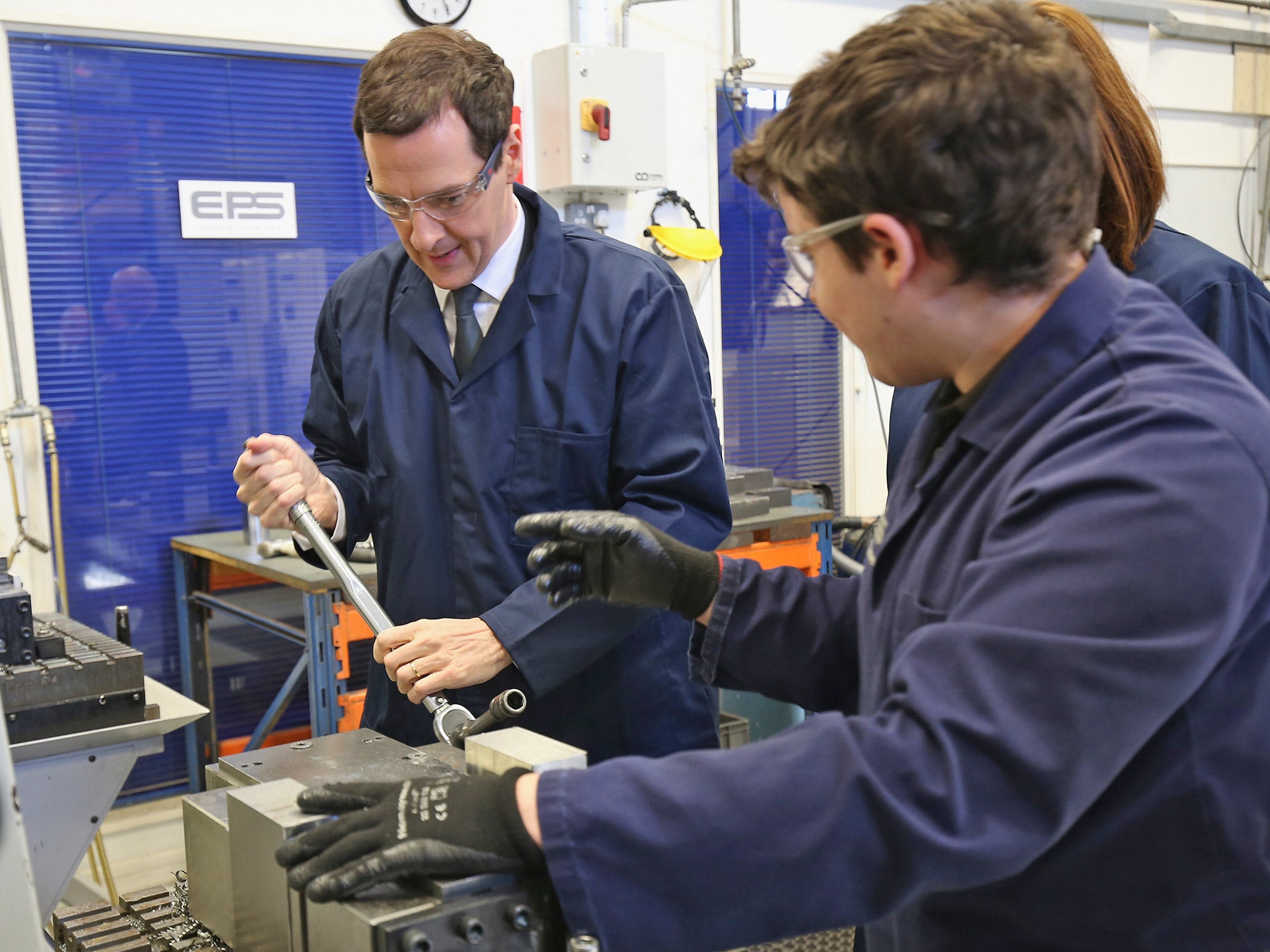Autumn Statement: Apprentices scheme levy ‘will hit big companies’
The Confederation of British Industry said the levy will hurt more companies than previously feared

Big business slammed a payroll tax to create 3 million new apprenticeships on 25 November, marking a split with their smaller counterparts who will benefit from the move.
The Confederation of British Industry, the UK’s largest business group, said the levy will hurt more companies than previously feared.
“This was a good spending review for longer-term investment in the economy but there’s a sting in the tail in the size and scope of the apprenticeship levy,” CBI director general Carolyn Fairbairn said.
The 0.5 per cent tax will apply to large companies who have payroll costs of over £3m, roughly equivalent to about 100 employees. The Treasury said the top 2 per cent of UK businesses would pay for the fund. All businesses, large and small, will be able to apply to the £3bn fund once it is up and running in 2020.
Colleges also stand to benefit, given they receive a third of apprenticeship funding.
The Federation of Small Businesses warmed to the levy and backed the decision to use payroll as a criteria as opposed to headcount.
The Department for Business Skills and Innovation is leading the levy change and was one of the departments bearing the brunt of departmental spending cuts. The division, led by former Deutsche Bank executive Sajid Javid, will see cuts of £2.4bn by 2019-2020. Most of this – about £2bn – will come from switching higher education maintenance grants to loans, which was announced at the last Budget. Exempting highly intensive industries like gas and steel plants from costly renewable policies rather than paying them cash compensation will also save the department money.
The Small Business Rate Relief, which gives 405,000 total business rate relief, will now continue until April 2017 but the lack of detail sparked dismay from shopkeepers.
Infrastructure investment, which peppered Osborne’s speech, also got a warm reception from business. The Government pledged to increase capital expenditure in transport by 50 per cent. British Chambers of Commerce director general John Longworth said it was “good news” though he added: “We sorely need the Government to crack on and get building.”
Case Study: Small business
Steve Rice, 56, Leicestershire, owns SREM Footwear, a shoe factory based in Hinckley, Leicestershire.
I am a Conservative but they aren’t getting my vote anymore. I think George Osborne has actually done a good job in rescuing a poor economy and making it sustainable. But he has done nothing for my business except hurt it.
What’s the benefit of making all bank accounts digital? They completely dismiss the importance of small businesses in these statements, they do nothing for them. Small businesses just don’t generate enough money for his coffers and they get forgotten because it’s the big ones paying all the tax.
I support the rise in the minimum wage because it was too low, but I don’t agree with the methodology of how they’ve raised the living wage. To increase it so much in four years’ time has made it much, much harder for small businesses like mine to sustain. The rise should be scaled by business depending on size but instead small businesses are left paying the same as multinational corporations. The small business relief rate he has proposed doesn’t apply to most either.
I have between 10 and 20 employees at a time. Next year I won’t be able to have as many as that. It’s outrageous that I’m expected to pay the same rates as huge, multi-national business who employ thousands of people at any given time. There’s always going to be a knock on effect, I’ve put my prices up but there’s a limit to how much you can do that and still get custom.
I’ve had to speak to my staff and tell them the situation straight – I can’t afford to keep everything going while 50 per cent of my costs go on staff wages. I don’t want to be the person to have to tell people at Christmas that they don’t have a job.
Join our commenting forum
Join thought-provoking conversations, follow other Independent readers and see their replies
Comments
Bookmark popover
Removed from bookmarks